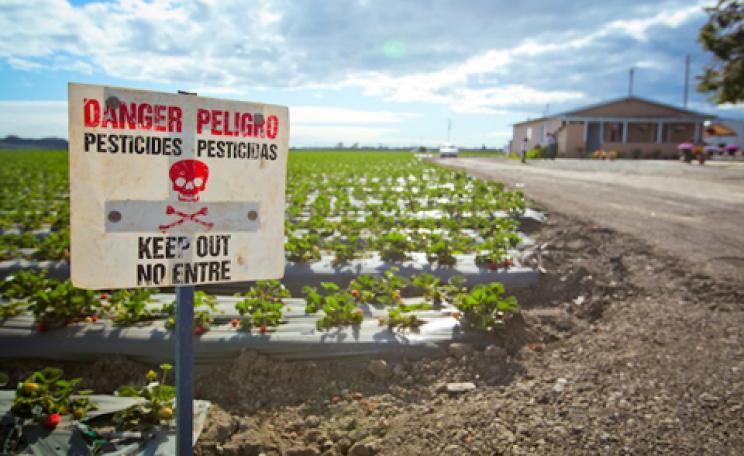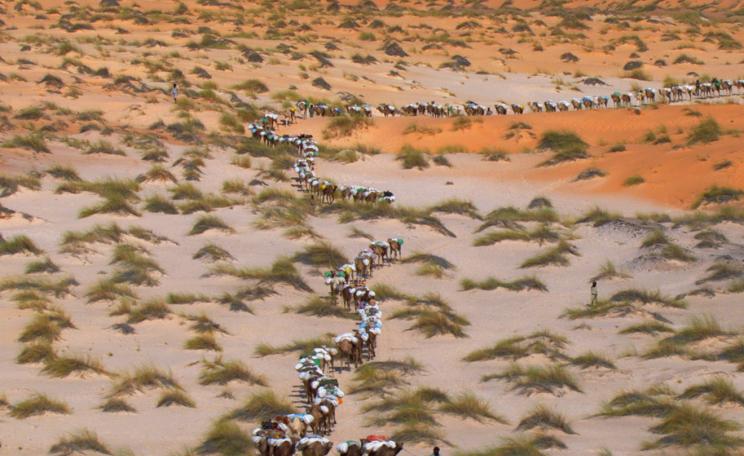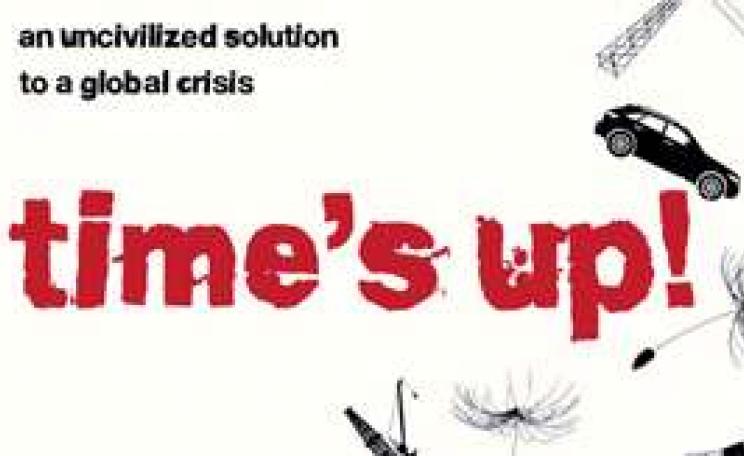‘In Santarem people started to say, “why is it so much hotter?” I tell people this is not God’s doing; this is happening because of the destruction of the rainforest.’
Father Edilberto Sena arrives at Rural Radio station and takes up his position behind the microphone. He reaches into his pocket and pulls out his script for today’s show. One question is scribbled on it for the daily debate: ‘Why is this happening?’
Edilberto is a Roman Catholic priest and a follower of liberation theology - meaning not only does he believe in teaching the word of God, but believes that he has an absolute obligation to fight poverty and bring justice to the poor. So he takes up the microphone each week not to recite afternoon prayers to his 200,000 listeners, but to tell the people of Santarem, Northern Brazil, exactly why they are finding it so hard to grow crops and why the rainforest that once surrounded their city resembles a burnt desert.
Edilberto isn’t just referring to climate change. The Amazon rainforest is being torn down by agribusinesses which use the land to farm soya and export to European livestock farmers, feeding the growing demand for cheap meat. For ten years Father Edilberto has stood at the heart of Santarem’s campaign against the world’s leader in this trade, Cargill.
‘In Santarem people started to say, “why is it so much hotter?” I tell people this is not God’s doing; this is happening because of the destruction of the rainforest.’
Cargill has US revenues of over $63 billion each year and is thought to be the largest privately owned firm in the world. It arrived in Santarem in 1999 with plans to expand the town’s port to make it big enough to take advantage of the fast, cheap route from Northern Brazil to Europe. The company claimed it wanted to bring development and prosperity to the state of Para, but Edilberto and his fellow campaigners remained unconvinced.
A 2006 report by Greenpeace shows that deforestation in those parts of the Amazon surrounding Santarem leaped from 15,000 hectares in 2002 to 28,000 hectares in 2004. The arrival of Cargill also seems to have encouraged increasing numbers of locals to make a living by grabbing land illegally and growing soya.
Edilberto paints a particularly bleak picture of what Santarem looks like now. ‘If you fly over Santarem you can see what a desert it has become, you can see the damage of the pesticides and the lonely Brazil nut trees. Cargill has brought devastation to us; this is why we are fighting them.’
However, Edilberto’s case against Cargill is based on more than just a moral or religious aversion to agribusiness - he is adamant that what Cargill is doing is, in fact, illegal.
In Brazil as elsewhere, large construction projects must complete an Environmental Impact Assessment (EIA) before ground is broken. Greenpeace discovered in 1999 that Cargill had filed no such assessment, even though the site was thought to be of indigenous archaeological interest. A high profile, multi-NGO campaign ensued, ultimately landing Cargill in court.
In June 1999 the Ministry of Public Prosecution won a civil action to stop Cargill constructing the terminal unless the report was completed. While Santarem rejoiced, Cargill and the Port Authority appealed the court’s decision. In 2003, Cargill again lost its appeal, but by this point the terminal was near completion - so big it had already destroyed the beach and the twenty-five family-run businesseses that depended on it. 630 Amazonians were made redundant leaving just 70 in work.
Cargill was eventually forced to carry out the EIA, but insisted it had followed correct procedures. This doesn’t wash with Edilberto.
‘When I saw the completed report, I realised it was pure propaganda for Cargill!’ he scoffs.
He describes the report as ‘vague and untrustworthy’ – saying it takes into account none of the evident damage to the environment, the use of pesticides poisoning drinking water or the fact it was built on a site of archaeological interest.
‘In Santarem people started to say, “why is it so much hotter?” I tell people this is not God’s doing; this is happening because of the destruction of the rainforest.’
After years of tireless campaigning, there appeared to be a silver lining: Cargill agreed to stop buying soya from freshly deforested parts of the Amazon – but only on a short-term rolling agreement, which has recently been renewed.
‘Cargill wanted to show Europe they were concerned about the environment to improve business, so we asked them to agree to ten years. Of course, they didn’t,’ says Edilberto.
The Greenpeace report suggests that Cargill’s intentions haven’t changed despite Edilberto’s efforts. In fact, the authors argue that Cargill is counting on increased deforestation in the Amazon to meet the huge export capacity of its port facility.
Soya can only make a profit when farmed on a large scale, so in order for Cargill to optimise production, deforestation and expansion are essential. This leads to displacement of rural farmers, particuarly locals who sell their land but lack the skills and education needed to work in Santarem.
‘Farmers used to grow mango, fruits, rice. Then they sold their land to Cargill and moved to the city but had no work, no skills and soon ran out of money,’ Edilberto explains.
Controversy surrounding this allegedly illegal use of the land in Santarem is still ongoing. Edilberto and the Community Action Group are convinced that the EIA gives an inaccurate assessment of the environmental impact of the terminal.
Despite death threats, political pressure to leave the church and almost being forced to leave his radio station, Father Edilberto came to the UK to gather further support.
‘Your people have to join us and put pressure on these big projects that are coming to Amazonia. Help us save the world!’ He says it with a smile on his face and lets out a little giggle, but it is said with conviction nonetheless.
‘We need you, we have to be more aware and confront them - because more destruction is coming.’
What Cargill told us:
Cargill has complied with all the legal and environmental requirements at our grain terminal in Santarém since we were granted permission by the state government of Pará to construct it following a public tender process in 2000. This includes the completion of an environmental impact study (called a PCA) as part of the construction process and the completion of another environmental impact study (an EIA RIMA) in September 2008, which has been made available for consultation in advance of a public hearing to be scheduled by the Pará government.
Alongside other Brazilian soy processors and exporters, we have also committed not to purchase soybeans produced on land in the Amazon Biome deforested after July 2006. Since this agreement (The Soy Moratorium) we have been working with NGOs – including Greenpeace, The Nature Conservancy, Conservation International and WWF— to independently monitor soy production and sanction farmers deforesting in the Amazon Biome.
To help, you can start by getting involved in the Friends of the Earth campaign ‘Fix the food chain’ by emailing your MP and adding your voice to Edilberto’s.






